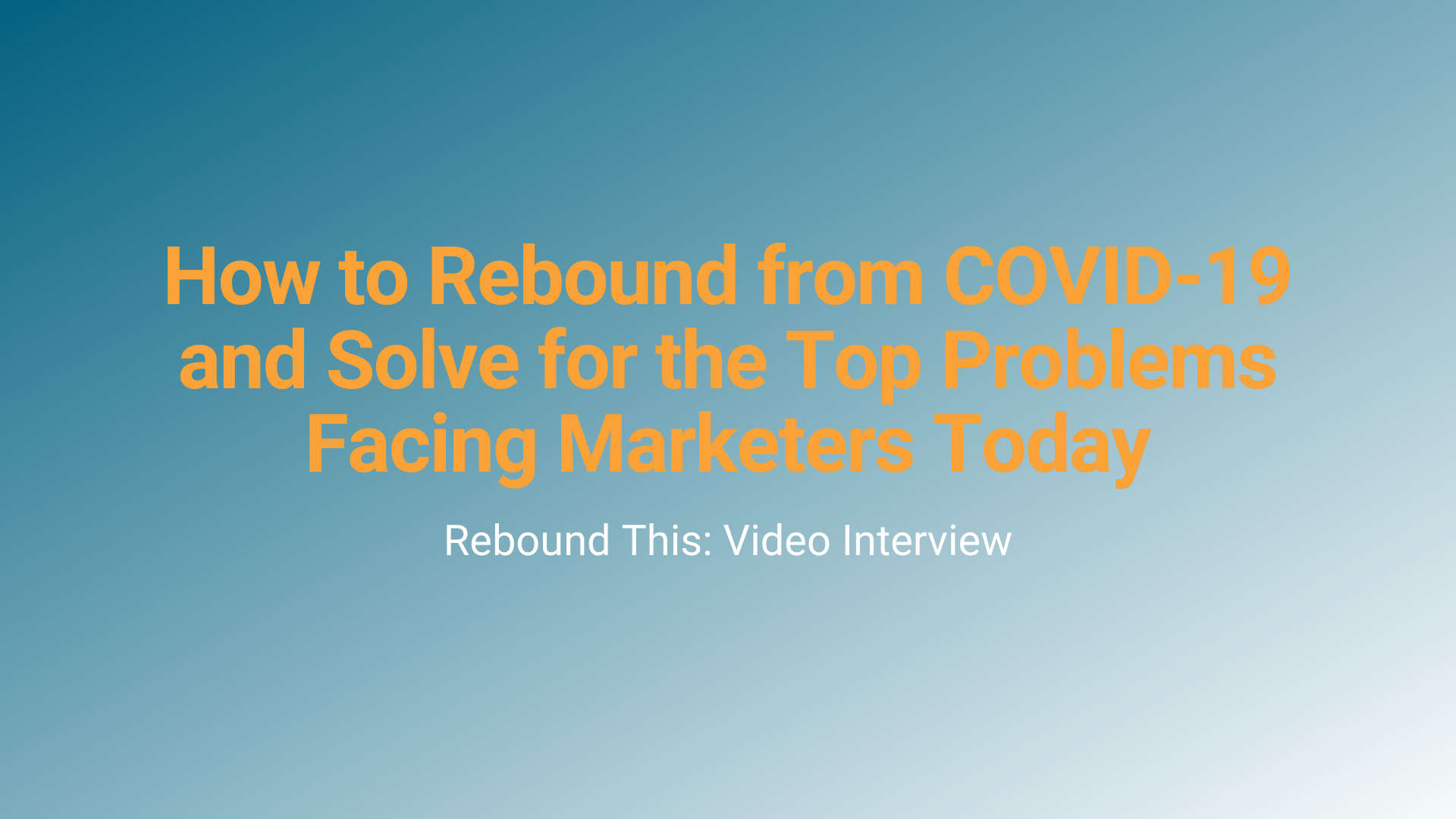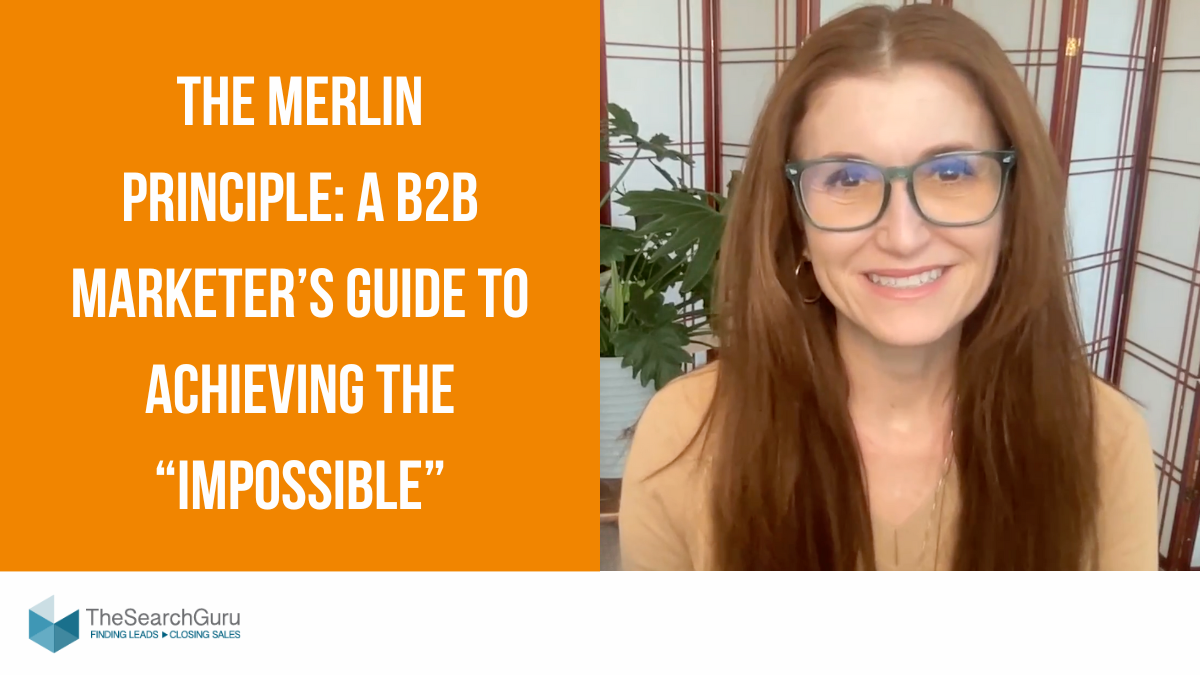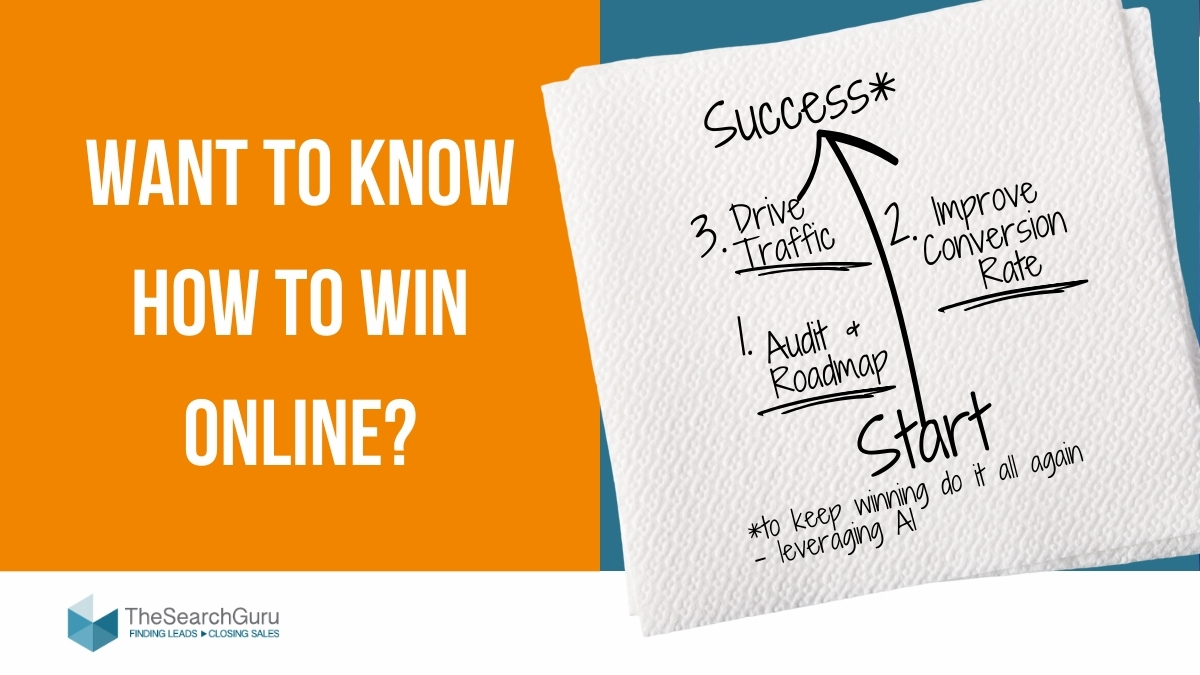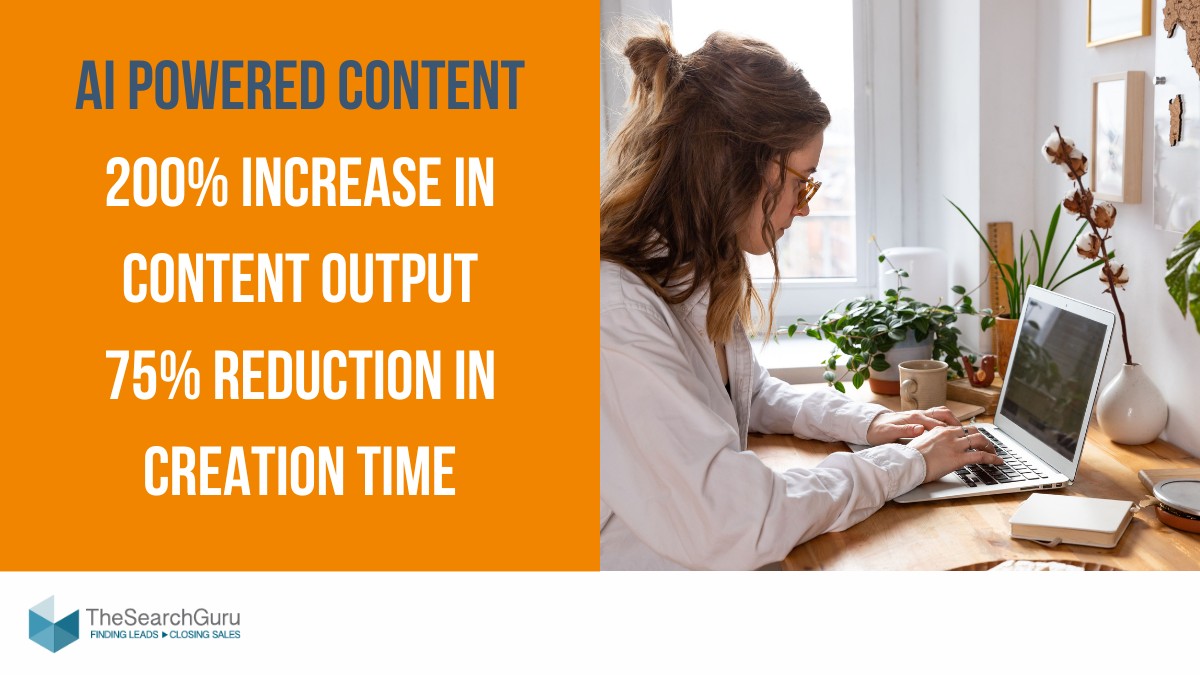Leslie Carruthers: Thank you Bree Blazak for making time today. I’m so excited to have you here, Bree Blazak in the house. And you’re gonna want to listen to what she has to say. She is one of those top marketers and bizdev people. So we’ve got two for one today.
If you’re dealing with one, two or three of the top three problems that content marketers and SEO professionals face today, (1) a shortage of resources, bandwidth, (2) not being clear on how to produce results, aka tracking issues and (3) time to produce results, we may hit some of those points today and we’re definitely going to cover some great ideas about how to prepare with those problems that everybody has (they’re kind of they’re ubiquitous) for the rebound. Once everything gets back to our post Corona virus, whatever that looks like new normal. So you’re not alone, and we’re talking to top marketers here at Rebound This about how to solve for these problems. Get ready for that rebound.
Bree Blazak is in the house and I’m so excited for you all to hear about what she’s up to. She is vice president at Afterpay Touch, a FinTech company solving problems for the retailers around the globe. She’s come from VeriSign, Double Click, Westfield Retail, Shop Runner, Your Amigo, incredible experience and a consistent producer. So I’m really interested to hear Bree about what you and your team and your leadership are up to, at Afterpay Touch and we’ll interchange Afterpay Touch and Afterpay in house to deal with the Corona virus, the impact on the teams and how you’re preparing for a successful rebound.
Bree Blazak: Yeah, thanks for having me. Appreciate it. It’s always good to see you and talk to you.
So nobody really anticipated this situation and I think everyone from the very beginning when we were sheltering in place, and people were in quarantine, trying to figure out what is this new landscape look like in terms of retail specifically. So you know, Afterpay in my role, I talked to large enterprise merchants in different various various verticals, fashion, beauty home. So it kind of runs the gamut.
We have a service, where we offer to the merchant, the retailer, consumers can pay in installments. So if they’re buying something for $200, they pay $50 upfront and then $50 every two weeks until they’re paid in full. We own all the risk and liability from the merchant, they get paid up front, and we wait for the consumer to pay us back. So a large part of our business is really about managing fraud and risk. As you can imagine, interestingly, we have less than 1% fraud and risk rates, which is lower than credit cards, but we didn’t know what would change.
The Change from Retailer’s Perspective
So, you know, from a merchant perspective — stores closing, how does a merchant actually execute against redirecting resources and energies and efforts and prioritization to online versus in store.
- So how does that change the roadmap?
- What does that mean for developers?
- What does that mean for all of the plans that they had for 2020?
That is a massive change and shift.
Retailers’ Two States:
- And what we’re seeing from merchants is, some of them are sort of still in crisis mode, believe it or not, where it’s sort of a term we came up with, but this just essentially means there, they don’t know what to do. And so they’ve paused those occupations. They’re trying to figure out their next move.
- And then there are others. We’re finding almost equally, where we were talking to them about working together and partnering, and this whole situation and COVID has accelerated those conversations because they are reinvesting and doubling down literally doubling down.
The Unknowns:
And so you know that there’s a lot of ramifications for that, including like:
- What if your DCs are closed?
- How do you ship goods?
- So even if you’re accepting three or four X amount of orders online are you fulfilling those?
- Is there a delay in shipping?
- What if you ship from stores – you can’t ship, they’re closed.
So there’s a lot of kind of like complex domino effect that I think is taking place in the retail space right now. And then if you look at like, sort of, I don’t know in our world and how we talk to merchants and how we work with merchants as we track things like what percentage of their total online sales are Afterpay versus like Visa or MasterCard or other tender types. You’re seeing an increase. And so that’s a double edged sword because you think, okay, well, consumers love the flexibility of a budgeting tool, that it gets them in this uncertain time. But will they pay it back? So that’s sort of the question mark, like, what’s the propensity and willingness or ability for a consumer to pay us back with these uncertain times? So far, so good. We’re seeing very strong repayment cycles. So we’ve been through basically a cycle from call it mid March with a sick pay back window. So we’ve kind of seen a full cycle. And we’re seeing great kind of performance on behalf of our consumers. And I would say, just around out the answer that a large part of that is because consumers want to use the product. They used to pay about eight times in their first year, over 23 times in their second year. So there’s high level of engagement and usage. Yep. And they don’t want to lose the opportunity to use it again. So if they run into trouble, they’re calling our service. We’re giving them like the ability to either change their payback calendar to line up with when they know they’re going to get paid or whatever the case for pause for, you know, some period of time until they know when they can pay us back. So in those instances, we wouldn’t incur any late fees onto the consumer. We were working with the consumer, because we know these are difficult times for many.
So we’ve seen an uptick in hardship, but not unmanageable at all.
LC: That’s really great feedback that they value the service that they’re getting out ahead of any issues. And I acknowledge you all and your teams for your generosity and working with people and acknowledge like being with what’s so always we’re dealing with.
BB: You know, we when we started life, we really, the whole premise for the product is built on doing making life easier for the consumer without the downside of credit, APR and finance. So it’s really in line with our core value system and doing the right thing, but yes, we’re happy that we’re able to provide for consumers.
LC: So what are you seeing are any positives that have come out of this experience for for yourself for the leadership for the company for the industry.
Personal Shifts
BB: So for myself, we’ll start there, it’s been an interesting shift, I think just you know, in the, in the way that we operate day in and day out and our jobs, you know, I’m not traveling, for example, right. You’re doing a lot more on you. (LC: You’ve been on the road since I met you in 2005.) Yeah, so you know, call it, you know, at least half the time traveling. So that’s changed for me. And what’s interesting about moving from face to face, on site meetings with partners and, you know, clients to zoom is, you know, like, all of a sudden,
You’re looking at someone’s basement with their wife’s pottery studio in the background,
like, whereas before you have this sort of veil of I’m the “ultimate professional” and not a hair out of place, and everything’s perfect. And you see people are exposed in a different way, then meeting in an office or in a conference room. And I think that’s what changes the dynamic and the conversation a little bit.
It’s like, the human element is really real and really there.
It’s just interesting. So, you know, that’s my personal observation.
LC: And someone noted that we all have the chance now to be the BBC guy.
BB: Yeah. Oh, my God. Crawling in and the wife freaking out like that, you know, if that were to happen today, the reaction wouldn’t be the same. Oh, yeah. It’s like, hey, like, we’re all kind of like, hunkered down. And this is my world back here. This is my family. So that’s pretty interesting. And I think part of that, too, the conversation has changed such that people are more open. They’re just sharing or they’re willing to try things and I don’t know, there’s just, it’s just shifted. Our organization and leadership team and just sort of like, how, how have things changed? I mentioned fraud and risk we have, we’ve done a really phenomenal job figuring out how to dial it back and dial it forward. Meaning, like, what, what orders will we approve? And we have, we approve over 85% of attempted transactions. How do we adjust on the dime? Like if we noticed, like trends happening — how do we dial that back or forward? Sure that we’re so so we’ve had some learning going through this then have allowed us to be more nimble in the market. So that’s really good.
I forget the last part of your question.
LC: What did you just said — anything in the industry that you’re seeing the positives, what’s the better impacts of this? We’re all very focused on the negative and the problems now the conversations I’m really interested in are what are the positives and how are we going to come out plan to come out the side better for it.
A Major Reset in Bricks and Mortar Stores
BB: So, you know in retail it’s it’s been a rough go the last call it you know, 10 or 15 years with mall traffic slowing down and just a shift to online but still the transitions, lots of transitions and I think a lot many retailers and merchants that have a lot a large store footprint. They probably have taken too long to sort of make that hard adjustment because they’re so beholden to the street and investors and stockholders that making too much of an adjustment to close doors would have been really different. So I think now with all the stores closed, how to come out of that, like will they use this call it “opportunity” to make a harder adjustment down to the footprint that makes more sense in key markets.Here is an end just like a reset. Like a major reset, in terms of bricks and mortar, I think that will probably happen.
Consumer Behavior During Covid Lockdown
I think we’re also seeing like, in the industry a shift in what people are buying. So if you just look at consumer behavior and one buying and how that’s even changed in the last six to eight weeks.
Stage 1: So in the beginning what we saw are people basically like hunkering down and spending so much on groceries and pet food and things like that like really planning for it maybe in an extreme way but scared and man for a long time at this.
Stage 2: And then you sort of see like a shift to settling in and you see the consumer buying things like video games and electronics and like, “how am I going to spend my time now” that I’m like home and I have all the food and pet food I need? Other other like, okay, entertainment, right?
Stage 3: And then it goes to I don’t know how long I’m going to be here. I need to start moving and they start buying running shoes and they start buying exercise equipment and home gym equipment. And you know, start buying, like streaming videos for exercise. And so, you know, how do you replicate your gym experience at home?
So I think there’s like this, there’s like an evolution, you see it in consumer behavior. It’s really interesting.
Stage 4: And then, and then you see the stimulus checks hit, and then people are buying, you know, things that you wouldn’t really anticipate them buying, but the volume of sales is more like almost like holiday. So we’ve seen the last like couple weeks, a major spike in just overall sales volume because the stimulus checks, it’s almost like, you can match it to the day that they were delivered. Similar to tax returns, no different it’s the same.
Example: What Has Changed in Beauty Products Buying
Oh, I think consumer behavior is really interesting and even in a category like beauty, what people are buying and beauty. So they’re buying like less adventurous color and more like skincare and gear and like gadgets because they can’t go to that petition and they’re not going to their salons. They have to figure out a way to how they do it at home. So just interesting to see consumer behavior and how it’s shifting.
LC: Yeah, for sure. Do you see anything that will be possible in the future because of this experience that wouldn’t have been had we not had it?
BB: I think the biggest one is going to be how retail bricks and mortar comes back. If downsizing like right sizing that they’ve been avoiding. Exactly. Like I think that in the world that I live in, that’ll be the biggest. Yeah.
LC: Great. That’s great. Yeah, no pressure. I’m just really interested in that question and what people have to say about it.
So your teams and your peers in the company. Being a fin tech company, were you more ready to bob and weave and change the work environment — be able to sell remotely if you were used to being there face to face, did that put you in a better position?
BB: I listen for coming out of it. In fact, I think we were really fortunate that we have a really strong balance sheet. And we’re really in a good position financially, I think, force and how we adjusted to working from home, the company did a phenomenal job of getting everybody set up that needed to be if they didn’t have what they needed at home, equipment wise, whatever it may be, to make sure that they’re comfortable. Had a fast connection, like all of those things. You know, everybody has a laptop, obviously, but just making sure everyone had the right equipment. So we acted really quickly in the first like, call it week or 10 days. Just do a quick assessment and make sure everybody had what they needed. So yeah, and then, you know, face to face meetings, no traveled, the none of that’s happening. So zoom is taken over everyone’s life. For better or worse. It’s fine, I think hasn’t really changed in terms of like, how quickly we’re getting things done. I think probably a little bit but I don’t know if it’s so much because we’re working from home or because the environment has caused people to just really get hesitant to make any big decisions or do you know really wait till they reassess. So a little bit of pausing has slowed down but I think we adjusted really quickly.
LC: Great, great. And what are you noticing that you’ll think you’ll keep from virtual selling versus the face to face I hear you saying that some folks, everybody’s taking a second look and slowing down a bit and then a few there’s some folks who are also speeding up that see that they need to embrace digital in a way they haven’t in the past, maybe or they’re seeing a new opportunity for themselves in a pivot in virtual selling Is there something other pieces that you think you’ll keep you know, used to be like if you weren’t there in person for a meeting was like you If you’re on video, you know, you you, you weren’t being respectful to the group or you weren’t really in it. Right? Do you think that’ll shift going forward and they’ll be more Zooms, and then the big heavy meetings, heavy, big, important heavy hitter meetings will be face to face new thoughts?
BB: Most definitely, I think I think the comfort level that individuals have around travel right now is really low and different than 11. For those of you that like lived through 911. That was a different fear as it related to travel. I think the fear of travel now is just like, all related to the virus and the unknowns around it and how we’re going to prevent it in future. Nobody knows those answers. And so I think travel will be impacted for a lot longer than it was during 911 in that recovery. So I think the adjustment is just inherent. People need to get comfortable and not take offense and not read into a virtual meeting versus an on site meeting. Huh, eventually, I hope we get back to normal. I like meeting people in person. I think it’s, it’s nice. There’s nothing like it. So I’m not discounting the value there. I just I just think that it will be completely different.
LC: No, for sure. I’ve heard from peers that they’re enjoying having more time with family, and children, and to get some house projects done, they’ve been on the list for a while. So taking off the commute or some of the travel that they would have done that wasn’t they found a way to work around it and are seeing some benefits. So hopefully people can hang on to that for a while too. And anything that you’ve seen from any of your retail clients about that you would share as ideas for other folks to strengthen their positions to be ready for the rebound so that they come out strong.
BB: And I think we really need to look at the data and as retailers and brands like look at in the market really like what what is shifting. What are consumers thinking about? What what are? What are they care about differently now versus before? I think there’s the obvious ones that I mentioned earlier. But I think that depending on your business, what it’s really needs to be nuanced. And there’s a lot, I think, a lot more sensitivity now around just like how you message consumers, you know, throwing out like a promotion or a discount, thinking through, like, how, you know, How was that received? What is the message and, and really thinking about the tone, I think of the message. So, you know, I think there’s, I think people really need to pay attention to how they communicate to the consumer, and watch and see what the consumer is reacting to and not you know, how that relates to marketing. I think it’s all just in about, you know, your all encompassing, like the whole message of the company or the brand and what you’re putting forth, I’ve seen some amazing things that companies are doing and saying out and their communities just about, you know, we’re, you know, talking about how this has brought us together in a lot of different ways instead of just pushing the 40% off promotion, you know, like, how did it connecting with the consumer I think will be different. I just think that it’s maybe and hopefully for the merchants an opportunity to get away from the the frequency and heavy discounting that so many have gotten into kind of a trap of doing. So what sort of value do they bring other than discounting and how can they near what’s important to the consumer? That is, you know, what’s the offer? That’s not just a discount? Yeah, a real opportunity to get in line with their with the folks they’re serving? Exactly. Bring authenticity and build the brand and loyalty? Yeah, like a partnership.
Exactly. And how does that translate to in store once the stores do reopen? Like what’s the sensitivity Around, you know, something as simple as the point of sale like touching the keypad versus a contactless opportunity. Oh, how is that going to shift how consumers pay? Will people pay more with Apple Pay and Google pay because it’s tap and go, and there’s really no nothing for them to touch? Hmm, nothing, you know, simple like that. But I think there’s, you know, different opportunities along those lines and how people think about how the virus has impacted them, and how we get back into the world and the new normal. What happens in terms of execution in stores? And something like point of sale is just one example. But I think that will change to like, what about people picking up more buy online pick up in store, like, how does that look? is there is there like a line of cars where people are just sort of like, I’ll be there between this time and this time is there you know, like, an Uber delivery network that’s not just Uber Eats, but for like, no other retail So, I think there will be offshoots in different areas of how, how retail and how marketers interact with consumers how product gets delivered and returned and just everything. It’ll touch everything really?
LC: Yeah, that’s great. Has anything surprised you?
BB: Um, what has surprised me? What’s I think everyone would agree that the biggest thing is just you know, I just remember sitting in New York City in our office in March. I don’t know what it was 12 or something. And New York felt a buzz even more than normal because people were just like, what’s going on? It was just kidding. You know, this whole virus thing was hitting and everyone was washing their hands and one was wearing masks. Yeah, but everyone was like kind of like, Oh my god, what is this and everyone started like leaving and going home. I actually short my trip by a couple days and so like, I don’t think if anyone went back in time eight weeks, anyone could have said, No. Seeing someone without a mask is weird. Like, how fast things change. I was a naysayer too. I was like, yeah, I’m washing my hands. It’s fine. It’s fine. I’m still traveling. It’s all good. Like, you kind of have this, I want to, I want to just continue on as normal. And you don’t want to, you know, raise any crazy alarm bells. But you also want to be smart and show that you’re kind of like strong amongst your team. And you’re not gonna like have fear take over. But now everyone’s like this real thing. So I think that surprised me is just like, the dramatic impact it had in such a short period of time. And like how everyone has has adapted so quickly. This like, It’s been weeks, not months or years. Yeah. It is amazing. It’s extraordinary.
LC: Extraordinary. Wow. Anything with virtual events. For you guys anything on deck, are you going to play with anything that the NFL Draft just happened online? Really? And they did a really well?
BB: Yeah, so we I mean, obviously all of our industry conferences were canceled or postponed most of them until later in the fall or even out further so I’ve seen I’ve seen it, you know, industry conferences and events and things that we attend normally like shifting to do virtual events have not yet attended one. So I’m not sure how that translates like, how do you how do you go from a two and a half day event in Vegas to capturing someone’s attention for you know, a few days, let alone two hours? Mm hmm. And all of the things that go into an event around catering and lodging and travel and entertainment and speakers and like yeah, I think it will change a lot like virtually, I don’t think you can hold someone’s attention for even a day. I think that would be really hard people. Thankfully, you know, many of us are busier than ever. And that just won’t fly. So how does it translate? I don’t know, I think there’s still an important content that people are interested in hearing. Especially now like, I get questions all the time from merchants, like what are other merchants doing? What are other merchants saying? So I think there’s definitely an appetite for learning and hearing from others in your space. But I just think they’re not. There’s no way they could be the same. It’s going to be shorter, it’ll be more focused. I think you’ll have you know, less attendees than you anticipate people will sign up and then not show it’s easier for them less commitment and travel and lodging. So I think it’ll change a lot. And in future two, I think people will start to really rethink the expense and the value that they get from that. different events. And really hone in on it.
LC: Yeah. I’m interested to see to the ingenuity that’s happening to adapt the adaptability, the modifications. Let’s rethink this and look at the context now. And how can we provide value can like the last point you were making earlier about retailers and messaging and the opportunity to elevate brand and marketing and loyalty and really look at the value prop is everywhere?
BB: Sure.
LC: So back to our core question, personally, professionally, in the industry, in your company, it’s all open. Whatever you see for yourself, that you would advise the other that you’re doing yourself, your company’s doing, or you would advise folks to take on to prepare for the rebound so that we are ready and strong when we get to whatever our new normal is, even if it’s phase one of the new normal. But, yet to other than those retailers. That you’re seeing that are frozen, because they haven’t maybe hadn’t done enough before this point to get into digital systems operations thinking about how to bob and weave with, with people with the world. What do you see that either you’re taking on yourself or you’d recommend for others, or you’ve seen others do?
Opportunities We See
BB: I think there’s an opportunity to get better at executing and just increasing the speed that you get things done. So, you know, through this whole process, many people that I talked to, they’re not quite there’s they’re distracted, let’s be clear, because there’s a lot of distractions, just around the virus but the ability to really like focus on what you need to get done and how you prioritize your you know, whether it’s tech roadmap or you know, your your marketing and how those things align, like the companies that come out The center will be really successful are those that have been able to pivot quickly and figure out how to reallocate resources if their stores teams are, you know, like, maybe half of them are furloughed, but how do you? How do you have that group working on? What did the stores look like when we get back? You know, how do you? How are you more nimble? And how do you execute? I think that’s an opportunity that we have right now. To to get better and improve upon I mean, the larger the merchant, usually there’s a correlation between the longer it takes to get something done. It doesn’t always have to be the case. And I think it’s a struggle in retail today where there’s just limited resources, usually on the tech side of things, and ability to execute. And I think, you know, the opportunity exists where business and tech can get better aligned on, you know, what do we need to achieve and how do we get there and how do we get there faster? Because I think, traditionally, it’s been in my experience anyway, a lot of merchants there’s always this ongoing struggle, let’s call it or pull and push between the marketer and those those teams that they need to actually get it done. That’s usually the tech, the developers, the operations side of things like, how do you get alignment so that you can really like support each other and move more quickly, and get things in market to test and learn. I think there’s an opportunity to do that now because people have more time on the store side, the operations and tech teams that were dividing their time between digital and in store. They could folk you know, so that’s, that’s what I would say would be the biggest opportunity those that are will be successful are those that can actually have it move quickly and, and test and learn in the new environment.
LC: That’s a great point. We’re used to not having enough resources or bandwidth. That’s a given for pretty much everyone. We did a study a year and a half ago, and that was indeed the number one problem reported by content marketers and SEO professionals. And what I heard and what you just said, was this is a different kind of restriction. Maybe they have fewer bodies because their folks were furloughed. But there was also time because the stores are closed. So how do you now recreate the thing, either re examining, as you said, a roadmap or looking at how do we get alignment so that we can move forward on either current initiatives or the things that we see now are missing, that we’re going to need for when we come back? Now, that’s great. It’s exciting, actually, to have people looking at new ways of working together to handle old problems and new ones. With velocity. That’s it’s really exciting.
BB: I agree.
LC: For sure. Is there anything that I haven’t asked you that you’d like to share, or speak about?
BB: I saw that question and I thought about it. I think we’ve basically covered it. I mean, I think sorry that this keeps going off my slack. So no worries.
LC: I think I think we covered it unless you can think of something that’s an add on question. I think that’s great. I’m really curious and nice to see how much of the what we talked about because everybody’s still processing is not philosophical, but you know, 10,000 foot view versus in the weeds. And, as you know, like you said, You hadn’t been to a virtual event yet, right? Like that’ll happen. And then there’ll be something I was just watching this guy, Brian Fonzo, had a review of the NFL Draft, the 30 things that they did well that you can take and apply to your virtual events, like just a super fun, like all the stuff that’s, that’s happening and also being thoughtful about the impact on people like what everyone’s really dealing with, because now all your co workers aren’t your co workers that you knew from the past. Right now. There are Trying to figure out how to do whatever version of homeschooling is for the rest of the year right there with the pets all day that they weren’t with the pets, you know, the pet was used to. So there’s like, yeah, and then they’re with anyone else in the family or they’re alone when they weren’t used to being alone. So it’s almost like we’re all new people walking around in these new clothes that we haven’t ever worn before and are trying to get comfortable in them. Right and figure out how to be with all these new people and these new outfits, adjusting to different environments.
BB: I think that’s a really good point. There’s like this instantaneous blurred line between work and home and everyone likes to talk about like the work life balance. And I don’t know that this situation has actually improved that I think what it’s teaching us is that we need to be more flexible, that need to be more open that we need to be more understanding that we need to be more human. that, yes, maybe I’ll be working till 11 o’clock at night, because, you know, I had to deal with things with my children earlier in the afternoon, but I’ll still get the work done. So I think like, you know, the trust between colleagues and in the organization that, you know, you’ll see people stepping up and getting things done, but it just might not be in that, you know, eight to six timetable. Just definitely like a flexibility and, you know, how do you how do you figure it out? I think everybody is. Everybody is doing the best they can. And I agree with you. I think looking back like if we were to do this again in six months and look back, I think that would be really interesting to see like, how much of this isn’t the same and how we’ve come out of it. What’s changed? But yeah, like it’s the whole work life balance thing. Like I have this office thing, gotta have like a space to go to, helps to separate home but men Don’t you know as much as my family I love them dearly, like it’s too much time together so And what about the people that are alone? that’s entirely different. Like I, you know, think connect one interesting thing actually, if I know we have to wrap up, it’s just, you know, talking about human connection and how that’s changed through zoom and not being traveling. I I’ve had a couple of happy zoom happy hours with my college girlfriends that I have gotten together with and haven’t like, even talked to in years, and all situation has sort of like, initiated a reconnection, let’s call it so like, with old friends or in our space, you know, how do you reconnect with the consumer post? COVID You know, like, it’s, it’s different.
LC: So, yeah, we got a big improv class. I think we’re all in a big improv class, not to make light of new people or dealing with some really heavy, really big things. And yeah, just improv all over the place. Totally. All right. Well, thank you so much for your time. And yeah, that’s a great idea. I like that follow on idea of Okay, how is it now? Because, I think the rebound is I think more like waves of rebounding then based approach for sure.
Great. Well, thank you so much. This was awesome.
BB: All right. Take care. Bye.






